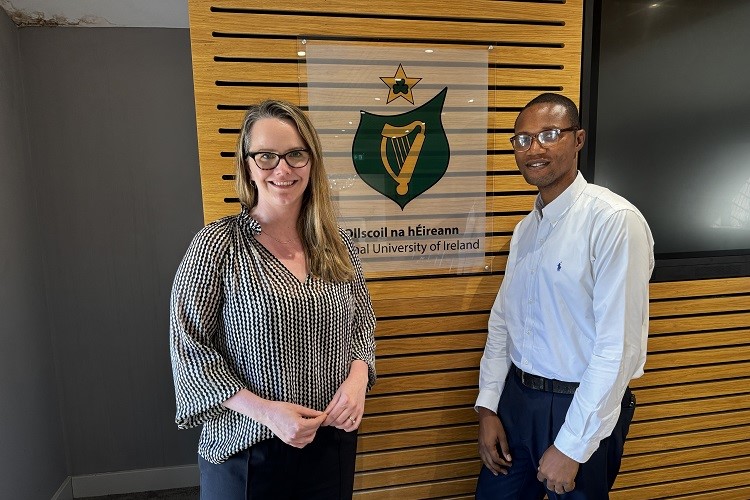Network on Conflict-Affected Agriculture in Nigeria

Dr Caitriona Dowd with Dr Olutosin Otekunrin of the partner organisation, PiLAF
Project title: Network on Conflict-Affected Agriculture in Nigeria
Project PI: Caitriona Dowd
Research partners: The Innovation Lab for Policy Leadership in Agriculture and Food Security (PiLAF), at the University of Ibadan, Nigeria
Funder: Research Ireland and Department of Foreign Affairs (New Foundation)
Project overview:
A worldwide food crisis is severely undermining global health, human security, and progress towards Sustainable Development Goal 2. While there is widespread agreement that conflict causes hunger, we also know not all conflicts cause the same level of food crisis. What is still unclear is how various conflict tactics and dynamics, and their intersections with specific aspects of agriculture, lead to different food security outcomes. This network brings together experts in conflict studies and smallholder agriculture to explore knowledge gaps, map available evidence and propose priority areas to improve agricultural resilience and overall food security in conflict, focused on Nigeria.
The Global Report on Food Crises estimates there are nearly 25 million acutely food-insecure people in Nigeria (FSIN, 2024). Protracted conflict in the north-east is a major driver, but broader insecurity, including inter-communal clashes, has a devastating impact on livelihoods and food security across much of the country.
This project brings together experts in peace and conflict studies, agricultural development, and economics to enhance understanding of conflict’s impacts on smallholder agriculture in Nigeria. The project establishes a network of partners from the Centre for Peace and Conflict Research at University College Dublin and the Innovation Lab for Policy Leadership in Agriculture and Food Security (PiLAF) at University of Ibadan. The network seeks to identify research gaps and priorities for future collaboration. The ultimate aim is to develop and pilot innovative solutions to address, mitigate, and prevent conflict’s negative impacts on smallholder agriculture in Nigeria and beyond.